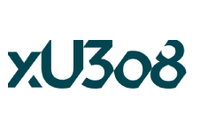Nuclear Deal Flounders on Iran Comments, but “Not Dead Yet”
Iran is taking the fifth and final step in reducing its commitments to the Joint Comprehensive Plan of Action, a deal signed in 2015.
Iran has clarified statements released over the weekend, when it said it will go ahead and enrich uranium above and beyond the guidelines set out in the now-deteriorating Joint Comprehensive Plan of Action (JCPOA).
Also known as the nuclear pact, the JCPOA was signed by nations including Iran and the US in 2015.
The Obama-era deal set strict guidelines around Iran’s nuclear program, limiting the amount and grade of uranium the nation is allowed to possess. For its cooperation, Iran had sanctions against it eased.
In May 2018, US President Donald Trump pulled the US out of the multinational deal, and his administration has since applied new sanctions on Iran, impeding its oil sector; relations between Washington and Tehran have been strained ever since.
Most recently, the US ordered the killing via drone strike of Iranian general Qassem Soleimani, which has further strained already tense relations.
According to a Sunday (January 5) release, the Islamic Republic is taking the fifth and final step in reducing its commitments to the JCPOA. This latest measure relates to the limit on the number of centrifuges used to enrich uranium.
“As such, the Islamic Republic of Iran’s nuclear program no longer faces any operating restrictions (including enrichment capacity, percent enrichment, amount of enriched material, and R&D),” reads the statement. “… If the sanctions are lifted and Iran benefits from its interests, the Islamic Republic of Iran is ready to return to its obligations.”
Iran’s foreign minister, Javad Zarif, took to Twitter (NASDAQ:TWTR) shortly after to clarify that the country is willing and able to reverse these measures and will continue to comply with the International Atomic Energy Agency (IAEA).
As 5th & final REMEDIAL step under paragraph 36 of JCPOA, there will no longer be any restriction on number of centrifuges
This step is within JCPOA & all 5 steps are reversible upon EFFECTIVE implementation of reciprocal obligations
Iran’s full cooperation w/IAEA will continue
— Javad Zarif (@JZarif) January 5, 2020
While concerns abound regarding the nation’s plans to ramp up enrichment, Richard Johnson, senior director for fuel cycle and verification at the Nuclear Threat Initiative, told NPR in an audio interview on Monday (January 6) that much should be noted from what the country didn’t say.
“Again, what’s interesting is it seems that Iran is staying within this peaceful case. They did not announce, for example, that they wanted to reconstitute a plutonium production reactor at Arak that they had actually taken apart under the deal. And this is a facility that Israel was extremely concerned about.”
While Johnson believes it’s more important to watch what Iran does instead of what it says, European leaders quickly scrambled to organize a meeting of 28 foreign ministers in an effort to prepare for Iran to breach the nuclear deal.
“The deal is all but dead, but we will do everything to slow and limit the (nuclear) proliferation slope that has been taken to try and save what can be saved,” a European diplomat told Reuters on Monday.
The meeting of European ministers is set to take place this Friday (January 10).
By Tuesday (January 7) morning, Iran’s deputy foreign minister, Abbas Araghchi, was pulling back from the tough stance taken over the weekend.
“The nuclear deal is not dead yet,” Araghchi told IRNA, Iran’s state news agency. “We are ready to come back to full compliance with the deal depending on the ending of sanctions and gaining from the economic benefits of the deal.”
In the meantime, the IAEA has committed to continuing to monitor and verify activities in the country and will report back to JCPOA member nations in a timely fashion.
Don’t forget to follow us @INN_Resource for real-time updates!
Securities Disclosure: I, Georgia Williams, hold no direct investment interest in any company mentioned in this article.




